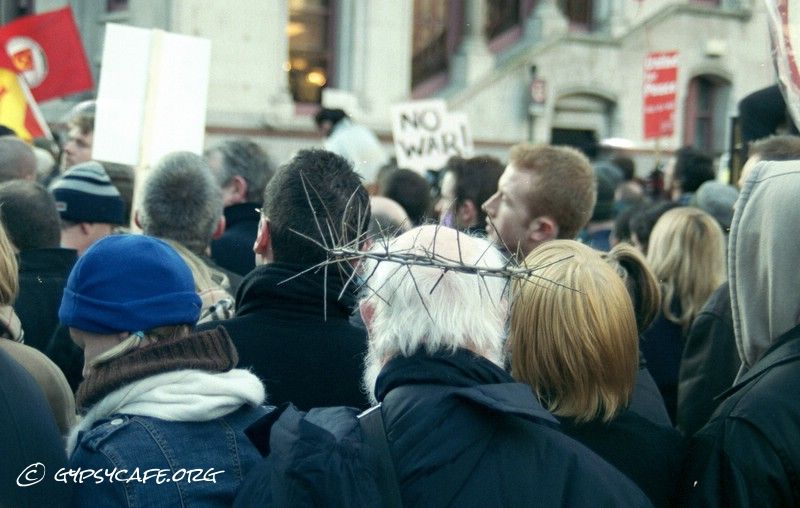
Darkness Before Dawn (Part 5) – The Lighthouses That Make a Difference (UPDATED)
In this 6-part series, we are exploring the purpose of polarity and the nature of truth. Please see index at the bottom of the page for chapter selection.
Introduction
If – hypothetically speaking – the universe wanted to evaluate heart and soul development at critical junctures in time, dark ages would provide the ideal circumstances for doing so. Dark ages can be terribly regressive and destructive, and it could be hard to reconcile oneself with the idea – from a spiritual perspective – that the universe would want to impose such harsh circumstances upon humankind. However, in the context of the earth being an incubator for the soul (as postulated in Parts 2 – 4), the possibility that human souls would be tested during important transition stages between ages is almost self-evident, especially if the objective would be for some kind of sorting to take place.
Turning Down the Lights
When all the lights are dimmed, will there be an inner light shining from within? In a culture of indifference, who would pass through the narrow gate [1] to make a difference?
How would “the lights” be “dimmed” during a dark age? Perhaps “the sky” would “fall”, meaning that human consciousness would decline, which is exactly what happens during dark ages (for details, please see The Fifth Sky). The word dark in dark ages refers to this very phenomenon. Consciousness descending is, indeed, a scary prospect, because that could mean a reduction in self-awareness which could lead to less personal autonomy and limited self-direction, potentially resulting in less self-control.
Internal structures (value systems, morals & ethics) are needed to support and maintain outer structures (rules, regulations, laws, etc.), and so it is almost inevitable that a lower level of consciousness within people in general would lead to more chaos in the world. Should consciousness decline, people would not necessarily be fully aware that they are less conscious or less self-aware than before because a lower level of self-awareness is the nature of being less conscious. They may notice more chaos in the world, but may be blind to their own participation in the chaos.
With a decline in consciousness, a general regression is likely to occur in terms of the differentiation that individuals have achieved in becoming autonomous beings (please see Parts 3 & 4). In such a scenario, less autonomous people who are participating in mass culture would be more susceptible to being caught up in destructive and dark trends developing in societies. They would lack the required autonomy and inner resources either to opt out of such trends or to extract themselves from them. On an individual level, it would all depend on how autonomous or self-differentiated from collective thinking a person really is – and this would be put to the test.
Since self-differentiation (which leads to autonomy) comes about through the discernment of truth, valuing what is true would very likely deteriorate during a decline in consciousness because the significance and importance of truth would be less self-evident. Ongoing discernment between what is wrong and what is right is then likely to decline, too. Continued differentiation and conscious personal growth would slow down which – over a period of time – would result in more apathy and indifference. Under such general conditions, only the most self-differentiated of individuals are likely to continue to hold on to truth and consciously live by it. In an ocean of indifference, they would be the autonomous lighthouses that make a difference by serving as beacons for those who have lost their way.
Post-Truth & Postmodern Tribalism
The upheaval of our world and the upheaval of our consciousness are one and the same. Everything has become relative and, therefore, doubtful. – Carl Jung (“The Spiritual Problem of Modern Man” – Civilization in Transition) [2]
The peril of abandoning truth is that when people intellectually embrace a concept such as “post-truth”, they could be walking away from their traditional, cultural and spiritual foundations which – as a whole – comprise the framework for their morals, values and principles. Truth lies at the core of the creation of value systems and – as mentioned before – abandoning truth leads to indifference and apathy (and, by extension, relativism) in relation to what is right and what is wrong.
Humans are social and political animals according to Aristotle and having shared principles is one of the important ways in which we bond with the people in the groups that we belong to. Since we all have a need for belonging to groups, we would always have a need for shared principles. If we become indifferent to truth but still need principles in order to bond with groups, our principles could take on an ideological form. We may not truly believe in them, but we would need to believe that we believe in them because they would serve both a political and social function, i.e. they would serve mainly as our vehicles for group membership.
When our foundational principles that were established through family, community and culture (and even through church in some cases) are neglected, abandoned or rejected through indifference, the belonging that used to be felt in those more traditional group contexts could fade out. Walking away from one’s deeper principles, even just on an intellectual level, could mean a loss of a part of one’s identity because what we believe in is an intrinsic part of how we identify with ourselves. Losing a part of one’s deeper self could lead to an identity crisis and a new search for identity to fill the vacuum.
Nowadays, a new sense of belonging and identity can readily be found in shared political ideologies (identity politics) [3] which appeals greatly to people who find themselves in search of identity. This form of identity can be rather superficial and insecure, because it is not derived from deep foundational group principles developed during the formative years. Neither is it based on deeply identified individual principles that have led to autonomy through differentiation.
Indifference to truth combined with identity politics could lead to an almost inevitable state of constant animosity towards the other. Identity politics thrives on polarisation because it is based on opposing group identities and ideologies (also, see Unity in Diversity vs. Disunity in Ideologies).
Identity found in identity politics is not centred within the core of each individual but is dispersed across the collective. Constant confrontation (with opposing sides) is, therefore, required to assert and maintain group identity and, by extension, individual identity, because the group’s identity is the individual’s identity. Another way of putting it is that group identity and individual identity form a combined unit in identity politics, and this identity exists mainly as a reaction to something or someone external to itself – while it does not really exist within itself (it has no core as it is dispersed across the collective.) The group, therefore, constantly needs enemies to confront in order to reinforce a sense of itself – and if there are no enemies to be found, then enemies may need to be created for that purpose [4].
Since individual identity is perceived as group identity by identitarians (those who practise identity politics), individuals who are outsiders to the in-group are purposefully categorised according to arbitrary group associations. Their identity is assigned to them according to various negative labels that could be applied to the groups that they seemingly belong to – for example, being labelled according to their gender, ethnicity, political leanings or social or economic class. With regard to the autonomous, unique, individual being, the individual personality (or soul or spirit) within the person is usually not recognised or acknowledged.
Under the above conditions, it would certainly be very difficult – perhaps impossible – for identitarians to have compassion or empathy for anyone from an “opposing” circle or group. It would certainly, also, be much harder for them to want to collaborate or cooperate with outsiders on a mutual basis. In such an atmosphere, indifference to the plight of others would surely be the easiest state of being. Identitarians may even be motivated to be purposefully indifferent under such circumstances so as not to compromise their allegiance to their own groups. Moreover, they may be driven to actively express animosity or anger towards members of out-groups.
The Value of Truth
It is only the very compassionate, the highly spiritual, the genuinely religious (non-fundamentalists who follow a doctrine of compassion) and the most responsible of individuals who would recognise the perils of abandoning truth. The truly compassionate would reject the notion of “post-truth” in its entirety, because if there were no truth in the world it would be a dark, loveless world, a place unfathomable for those who are genuinely compassionate. Indeed, a worse hell could hardly be imagined by them, and so they would do everything in their power to keep love alive. In an ocean of indifference, they would be the autonomous lighthouses that make a difference by serving as beacons for those who have lost their way.
In the Eye of the Storm
If things go wrong in the world, this is because something is wrong with the individual, because something is wrong with me. Therefore, if I am sensible, I shall put myself right first. – Carl Jung (Civilization in Transition) [5]
Tribalism is as old as humanity itself, and it comes in many forms. And today, postmodern tribalism in the form of identity politics is eagerly embraced by significant portions of societies. If most people within affluent and democratic nations embrace identity politics instead of rejecting them, then what would that say about the willingness of people to live in harmony?
Dark ages bring out the worst in people and show up their shadow sides – these are the hidden areas that need to be worked on and be resolved. At important historical junctures, the purpose of extreme polarisation could very well be to “sort the wheat from the chaff”. Many religious scriptures point to such an event in time. Whether that is what is happening right now is, of course, open to interpretation, but it cannot be ruled out.
The pillars of society are often the most pilloried, but those who today remain centred anyway in the face of extreme volatility are clearly the ones who are able to withstand the tests of extreme polarisation. They have solid foundations and truly embrace, and strive for, harmony – as hard as it may be to remain balanced under such circumstances.
The cycles of time will ultimately determine the fate of humanity, because the energy shifts are larger than us – the universe is in charge. In the meantime, the individual harmony-seekers fulfill a very important function in stabilising an unbalanced world by maintaining their level of autonomy. They comprise the small light spot within the large dark half of the Eastern Yin and Yang symbol.
The ultimate objective would be for as many people as possible to come full-circle and to arrive at a balance between duality and non-duality, and between autonomous functioning and collective functioning. Optimum collective functioning can only be arrived at through optimum autonomous functioning which can then result in unity through autonomy (See Part 4).
A unified approach to dealing with global crises remains unlikely as long as countries are internally preoccupied and distracted by societal polarisation. The best approach, therefore, would be to earnestly and urgently encourage individuals to work towards inner stabilisation through individuation in order to bring about external stabilisation in the world at large.
But, in reality, only a change in the attitude of the individual can bring about a renewal in the spirit of the nations. Everything begins with the individual. – Carl Jung (Civilization in Transition) [6]
By J.J. Montagnier
(Published on December 3, 2019. Updated on April 17, 2020)
In the next chapter, we will continue to take a deep dive into how polarity facilitates human development and growth; we will consider how we as individuals can find our purpose and maintain balance within our polarised times; we will contemplate the nature of truth in a ‘post-truth’ world and we will consider how we can get ready for the incoming light of truth. Please subscribe to receive alerts for updates.
[Please note that this series is a work in progress. Some edits may occur after publication. Sometimes, content earmarked for follow-up chapters only makes it into later chapters.]
J.J. Montagnier is a futurologist and travelosopher. His writings are inspired and influenced by his world travels, personal and social observations, intuitive insights and the deep study of relevant and related subject matter.
INDEX
Part 1-A
Part 1-B
Part 1-C
Part 1-D
Part 1-E (coming soon)
Part 2
Part 3
Part 4
Part 5 <<
Bibliography:
[1] Matthew 7 NIV. (n.d.). Bible Hub: Search, Read, Study the Bible in Many Languages. Retrieved September 4, 2021, from https://biblehub.com/niv/matthew/7.htm
Matthew 7:13-14. [13] Enter through the narrow gate. For wide is the gate and broad is the road that leads to destruction, and many enter through it. [14] But small is the gate and narrow the road that leads to life, and only a few find it.
[2] From a chapter titled “The Spiritual Problem of Modern Man” published in Civilization in Transition, Part 10 of The Collected Works of C. G. Jung, The Bollingen Series, Princeton University Press, 1964 (Carl Jung, CW 10, Para 177)
[3] “identity politics.” Definitions.net. STANDS4 LLC, 2020. Web. 16 March, 2020 <https://www.definitions.net/definition/identity+politics>
Identity politics are political arguments that focus upon the interest and perspectives of groups with which people identify. Identity politics includes the ways in which people’s politics may be shaped by aspects of their identity through loosely correlated social organizations.
[4] “The totalitarian doctrine of social justice warriors.” Observer.com. Web. 10 March, 2020 <https://observer.com/2016/02/the-totalitarian-doctrine-of-social-justice-warriors>
[5] From a lecture in 1933, published in Civilization in Transition, Part 10 of The Collected Works of C. G. Jung, The Bollingen Series, Princeton University Press, 1964 (Carl Jung, CW 10, Para 462)
[6] From an article in 1918, published in Civilization in Transition, Part 10 of The Collected Works of C. G. Jung, The Bollingen Series, Princeton University Press, 1964 (Carl Jung, CW 10, Para 459)
Copyright © 2019 · All Rights Reserved · Gypsy Café


5 Comments
Very nice article!
Glad you liked it, Gloria! 🙂 Thanks for visiting.
Good evening,
very many thanks for these interesting thoughts. I have however a question. I do not believe in an absolute truth, because the situations or systems of value may be different from country to country, but I believe more in right and wrong. If you do something wrong in one country you are just killed, whereas in an other country you admit of having committed something not correct and you try, together with the victim, to find a just punishment, which makes it possibile to live together again in the future.
Very best regards
Good evening Martina, thank you for your visit and your very important comment. Yes, the question of absolute truth is a great question, because how do we determine it? This question I will address in my Part 6 of this series of essays (in the parts 3 & 4 I discussed how truth can be subjective and also how it can shift).
However, for me the answer about absolute truth lies in finding it in Natural Law. In some schools of belief the truth according to Natural Law is objective and close to absolute. According to the belief in Natural Law, the truth as it is defined by national or cultural practices or frameworks (for example government laws or regulations) are not objective truths if they are not also in line with Natural Law – in other words they are basically lies that we choose to believe are truths … (according to people who believe in natural law).
Of course, at the end of the day every person has to decide for themselves and many people have not heard much about Natural Law.
All the best,
Jean-Jacques
I absolutely agree! Thanks for your quick answer and I am looking forward to your post no. 6.
All the best
Martina